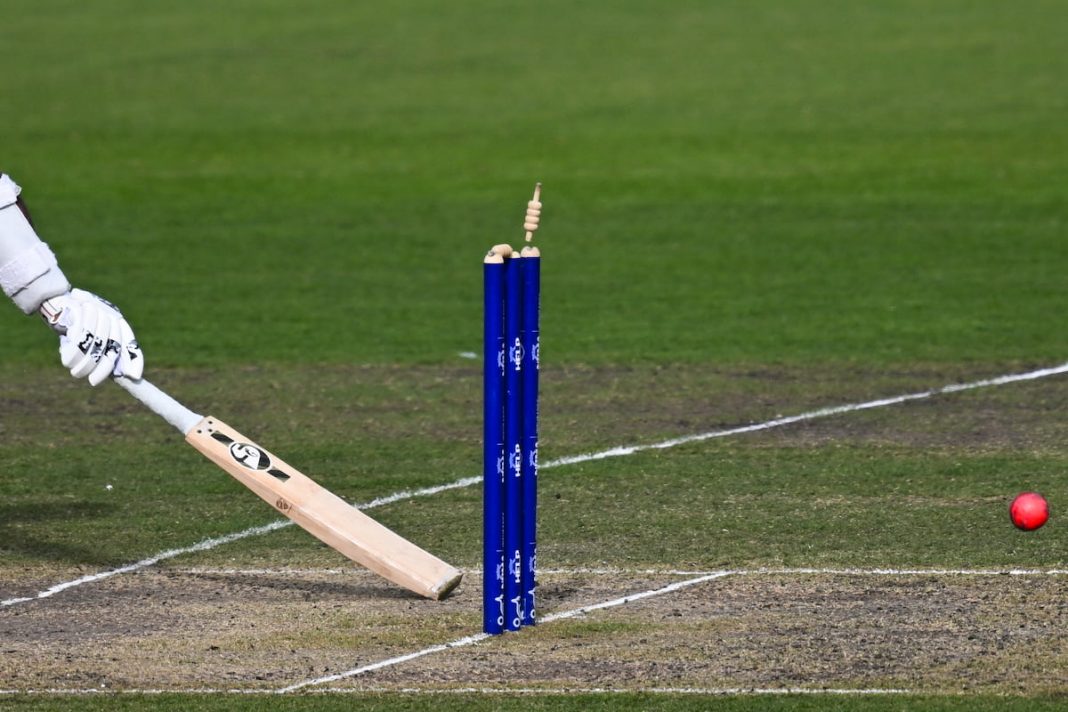Australian-born transgender cricketer Danielle McGahey claims the International Cricket Council (ICC) has declared trans women do not belong in the sport after a tightening of rules around eligibility.
The ICC announced new rules around transgender players on Tuesday evening, banning anyone who went through puberty as a male from playing in international women’s cricket.
The change in regulations is at odds with Cricket Australia’s rules, and AAP has been told they will have no bearing on any future players’ eligibility for the WBBL or WNCL.
The policy appears to have been prompted by the case of McGahey, who became the first transgender cricketer to take part in an official international match when she featured in a Women’s T20 fixture for Canada against Brazil.
The Brisbane-born 29-year-old, who played grade cricket as a man in Melbourne, moved to Canada in 2020.
Having transitioned socially, then medically, to a woman she began playing women’s cricket in Canada and was called into the national team in October 2022.
The opening batter went on to play all six of Canada’s matches during the Women’s T20 World Cup Americas region qualifiers event in Los Angeles, to add to national team appearances previously in fixtures which did not hold official ICC status.
Canada came second in the four-team event, failing to qualify, with McGahey making 118 runs at 19.67 with a top score of 48.
“Following the ICC’s decision this morning, it is with a very heavy heart that I must say that my international cricketing career is over,” McGahey posted on Instagram.
“As quickly as it begun, it must now end.
“While I hold my opinions on the ICC’s decision, they are irrelevant.
“What matters is the message being sent to millions of trans women today, a messaging say that we don’t belong.
“I promise I will not stop fighting for equality for us in our sport, we deserve the right to play cricket at the highest level, we are not a threat to the integrity or safety of the sport.”
Under the ICC’s previous regulations, which were effective from October 2018 and amended in April 2021, McGahey had satisfied all of the eligibility criteria.
However, following an ICC board meeting, new gender regulations have been announced, which follow a nine-month consultation process with the sport’s stakeholders.
Cricket Australia (CA) confirmed on Wednesday that they would not be changing their policy from 2019.
Under CA’s rules, no requirements are placed around the age of transition, but rather must demonstrate a concentration of testosterone in serum less than 10 nanomoles per litre continuously for 12 months or more.
Those rules are yet to have needed to be applied at an elite level.
If they were to in the future, players would still be eligible to compete at domestic level, but are now ineligible for Australian selection unless they meet the ICC regulations.
At grassroots level in Australia, players are still allowed to feature in any club competition which meets their gender identity.
“Australian cricket continues to have its own policy in place for domestic cricket, which establishes a framework for the inclusion of transgender and gender-diverse players balancing considerations such as inclusion and fairness and the wellbeing and safety of athletes,” a Cricket Australia spokesperson said.
“Our community guidelines prioritise participation and our mission of being a sport for all.”
with PA



